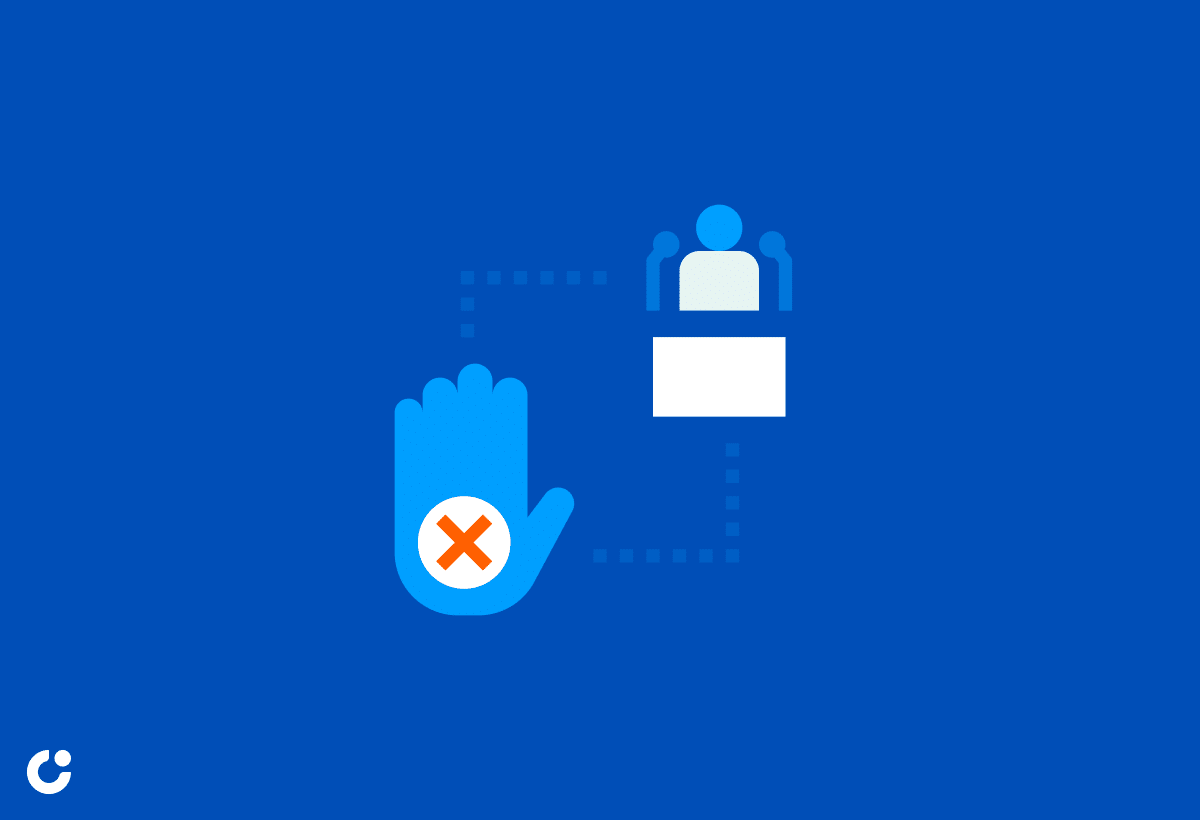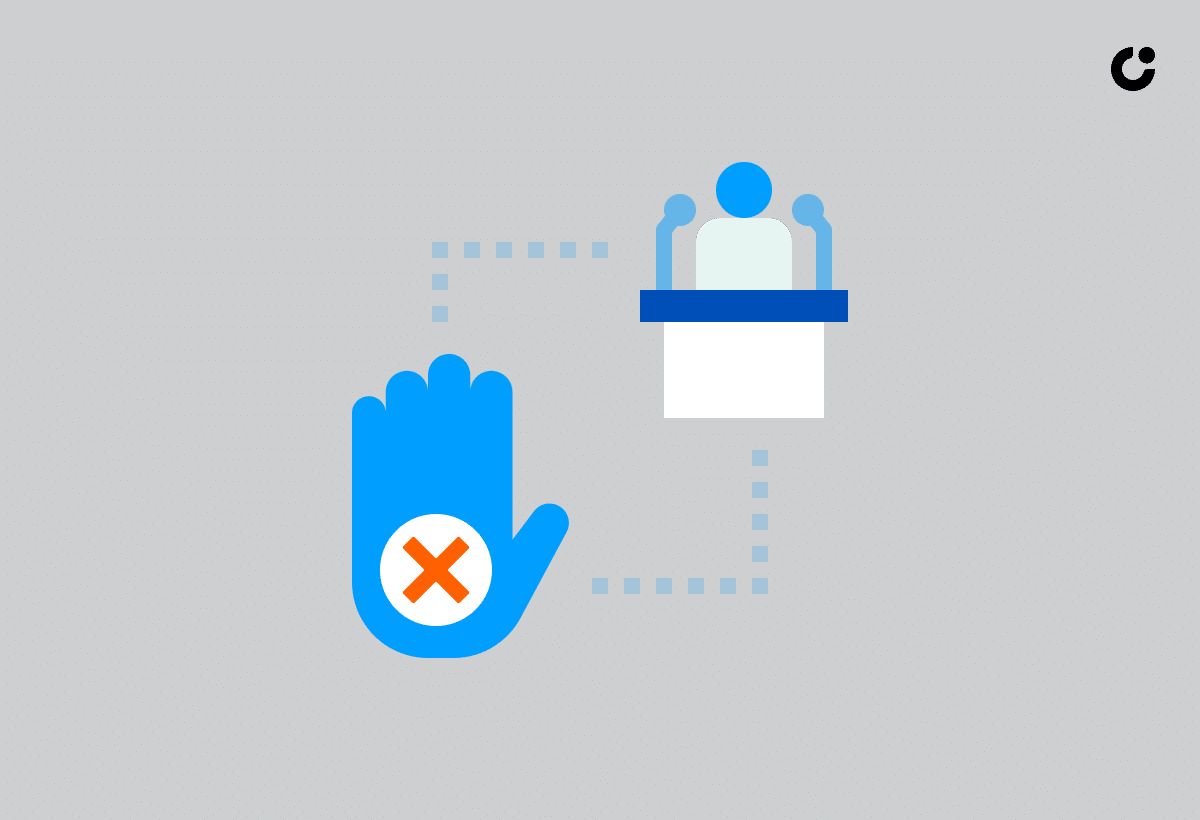Have you recently faced rejection after a job interview and are unsure of how to respond? In this article, we will explore the best practices for handling rejection with grace. From crafting a professional rejection email to nurturing connections and seeking constructive feedback, we will discuss how to respond positively to rejection and use it as an opportunity for growth.
Join us as we delve into the art of handling rejection with grace and developing your personal brand in the process.
Key Takeaways:
Respond to rejection with positivity, not negativity. Avoid blaming, begging, or becoming defensive in your response to a rejection email.
Crafting a rejection email requires professionalism and gratitude. Thank the interviewer for their time and express your continued interest in the company.
Use rejection as an opportunity for growth. Seek constructive feedback, nurture connections, and continue your job search efforts while staying informed about the industry.
Introduction

Facing job rejection can be a challenging experience, especially after an interview where you had high hopes. It's essential to understand how to navigate rejection emails, respond appropriately, and leverage feedback for personal growth and future opportunities.
In such situations, it is crucial to maintain a positive attitude and not let rejection discourage you from pursuing your career goals. Remember, job rejection is a common part of the job search process that everyone faces at some point.
Seeking constructive feedback from the hiring manager or recruiter can provide valuable insights into areas for improvement, helping you strengthen your skills and interview performance for future opportunities.
Approaching rejections with professionalism and grace not only reflects well on your character but also keeps doors open for potential opportunities that may arise in the future.
Understanding Rejection After an Interview

Receiving a job rejection after an interview can be disheartening, but it is a common part of the recruitment process. It's crucial to understand that not being selected for a particular role does not diminish your value as a candidate.
Job rejection can stir up feelings of disappointment, self-doubt, and frustration, which are all valid emotions in such situations. It's important to remember that rejection does not define your worth or abilities. Instead of dwelling on the negative aspects, consider it as an opportunity for growth and self-reflection. Constructive feedback from the interview process can provide valuable insights into areas of improvement.
By embracing rejection as a chance to learn and develop, you can enhance your skills and presentation for future opportunities. Maintaining a positive attitude and resilience in the face of setbacks is key to career progression. Remember, each rejection brings you one step closer to finding the right fit and landing your dream job.
Responding to Rejection

Crafting a thoughtful response to a rejection email can leave a positive impression on recruiters and potentially open doors for future opportunities. It's essential to handle rejection replies with professionalism and gratitude.
When drafting your response, start by expressing genuine gratitude for the opportunity to interview and for the feedback provided. Acknowledge the time and effort the recruiters invested in the selection process.
Then, consider incorporating specific feedback received during the interview, demonstrating your willingness to learn and grow. Make sure to express continued interest in potential future roles with the company, emphasizing your enthusiasm for contributing to their team.
Highlight your key skills and mention how you plan to improve upon them, showing your commitment to professional development.
How to Respond Positively

When responding to a rejection, maintaining a positive attitude can set you apart as a candidate. Express gratitude for the opportunity, seek constructive feedback, and convey your continued interest in potential future roles.
Expressing gratitude showcases your professionalism and appreciation for their consideration of your application. Consider the following example: 'Thank you for informing me of your decision and for considering my candidacy. I am grateful for the opportunity to interview for the position.'
Moving forward, seeking feedback can demonstrate your commitment to personal and professional growth. Politely requesting constructive criticism, such as 'I would appreciate any insights you could provide to help me improve for future opportunities,' conveys your eagerness to learn and develop.
Expressing enthusiasm for potential future interactions can leave a lasting impression. Conclude your response with optimism, such as 'I remain enthusiastic about the possibility of working together in the future.'
By incorporating these strategies, you can transform a rejection into a stepping stone towards future success.
What Not to Do When Responding

Avoid responding emotionally or burning bridges when replying to a rejection email. It's crucial to maintain professionalism, even in the face of disappointment, as your interactions with recruiters can impact future opportunities.
One important aspect to consider is refraining from expressing negative emotions or making impulsive remarks. Instead, take a moment to reflect on the feedback provided and respond with a positive attitude. By keeping your communication constructive and respectful, you not only leave a lasting impression but also increase your chances of being remembered for future openings.
Remember, recruiters appreciate candidates who handle rejection gracefully and with dignity. It showcases your professionalism and maturity, qualities that are highly valued in the recruitment process.
Crafting a Rejection Email

When crafting a rejection email, ensure that your message is respectful, appreciative, and leaves the door open for potential future engagements. A well-written rejection response can reflect positively on your professionalism.
Begin by expressing genuine gratitude for the candidate's interest in the position and their time invested in the application process. Acknowledge their qualifications and the effort they put into their application. Remember to personalize the message to make the recipient feel valued and respected. It is essential to communicate the decision clearly but gently, offering feedback that is constructive and encouraging for their future endeavors.
Closing the email on a positive note, express your desire to keep in touch for potential opportunities that may arise in the future.
Thank You Note Etiquette

Sending a thank you note even after experiencing rejection demonstrates your professionalism and gratitude for the opportunity. Expressing appreciation can leave a lasting positive impression on recruiters.
When you take the time to acknowledge the effort that went into the application process, it showcases your soft skills such as emotional intelligence and empathy. Crafting a thoughtful thank you message not only reflects your gratitude but also your ability to handle setbacks gracefully, which is a valuable trait in the competitive job market.
Sending a thank you note allows you to maintain a connection with the employer and keep the door open for future opportunities. It demonstrates your commitment to self-improvement as you seek feedback and show a willingness to learn from the experience.
Building Your Network

Building a strong professional network is essential for career growth and opportunities, especially in the face of job rejection. Nurturing connections, seeking feedback, and staying informed about industry trends can significantly enhance your job search efforts.
When facing rejection in the job market, having a well-established network can open doors that might otherwise remain closed. Networking is not just about who you know, but also about who knows you. By cultivating relationships with professionals in your field, you can access valuable insights and opportunities. Receiving constructive feedback from your network can help you identify areas for improvement, making you a more competitive candidate. Staying abreast of industry trends through your connections can give you a competitive edge in your job search.
Nurturing Connections

Establishing and maintaining professional connections can open doors to new opportunities and valuable insights. Actively engage with your network, seek referrals, and explore placement portals to expand your employment horizons.
One essential aspect of effective networking is to stay genuine and authentic in your interactions. Building trust with your connections is crucial for long-term success. When reaching out to contacts, focus on establishing a mutually beneficial relationship rather than just seeking immediate benefits.
Attending industry events and conferences can provide valuable face-to-face networking opportunities. Take the initiative to follow up with individuals you meet to nurture these connections further. It's also beneficial to join professional groups on social media platforms to engage with like-minded professionals and stay updated on industry trends.
Utilizing Feedback for Growth

Feedback, especially after facing rejection, can be a valuable tool for personal and professional development. Embrace constructive criticism, refine your resume writing skills, and leverage industry insights to enhance your employability.
Constructive feedback provides a roadmap for improvement, guiding individuals towards honing their skills and reaching their full potential. In the job market, utilizing feedback can significantly impact one's career trajectory by showcasing a willingness to learn and grow. Incorporating feedback into resume enhancements not only highlights adaptability but also demonstrates a proactive approach to self-improvement.
Handling Rejection with Grace

Responding to rejection gracefully is a testament to their professionalism and resilience. Acknowledge feedback, seek opportunities for growth, and approach each setback as a chance for professional development.
By maintaining composure in the face of rejection, individuals demonstrate a level of maturity that garners respect within their industry. Embracing feedback, whether positive or constructive, is essential for personal and career growth. Seeking out ways to enhance skills and knowledge, such as enrolling in relevant courses or attending industry conferences, shows dedication to continuous improvement.
Staying informed about the latest industry trends can help individuals adapt to changes and position themselves for future success. By handling rejection with grace and turning it into an opportunity for self-reflection and enhancement, professionals showcase their resilience and commitment to excellence.
Acknowledging Rejection

Acknowledging rejection is an essential step in the process of professional growth. Use feedback from rejections as learning opportunities, identify areas for improvement, and approach setbacks with a growth mindset.
By embracing rejection, individuals can uncover valuable insights that may have gone unnoticed in case of successful outcomes. Rejections often serve as signposts pointing towards areas that require enhancement, ultimately leading to refined skills and heightened self-awareness. Viewing rejections as part of the journey towards success shifts the focus from failure to resilience and adaptability. It fosters a sense of perseverance that is invaluable in navigating the ebbs and flows of professional pursuits.
Seeking Constructive Feedback

Seeking constructive feedback post-rejection can provide valuable insights into areas for improvement and skill enhancement. Approach recruiters or industry professionals for feedback to enhance your understanding of industry expectations and employer preferences.
Constructive feedback is not about dwelling on rejection but rather about transforming setbacks into opportunities for personal growth. When reaching out to experts for input, ensure you ask specific questions related to your performance and suitability for the role. This proactive approach demonstrates your commitment to continuous improvement. Reflect on the feedback received, identify recurring themes, and develop targeted strategies to address any identified areas of development. Leveraging professional insights can be instrumental in honing your skills and positioning yourself as a competitive candidate in the job market.
Professional Development Opportunities

Embrace rejection as an opportunity for professional development and growth. Explore industry-specific training programs, certifications, or skill-building activities to enhance your employability and stay competitive in the job market.
Rejection can be a catalyst for improvement, pushing you to reassess your strengths and weaknesses. By actively seeking out learning opportunities and upskilling in areas relevant to your industry, you demonstrate commitment to your career progression.
Consider pursuing industry-related certifications as they not only validate your expertise but also showcase your dedication to staying abreast of industry trends. Engaging in continuing education and attending relevant workshops or seminars can further broaden your knowledge base and network.
Staying Informed About the Industry

Keeping abreast of industry trends, market dynamics, and emerging opportunities is crucial for navigating job rejection with resilience. Stay informed about the employment market, industry news, and evolving demands to position yourself effectively in your job search.
By understanding the changing landscape of your field, you equip yourself with the knowledge needed to adapt to setbacks and capitalize on new chances. Tools like industry reports, company websites, and professional networks serve as valuable resources for deepening your industry insight. Attending industry events, webinars, or workshops provide firsthand exposure to the latest trends and innovations, enhancing your market awareness.
Continuing Job Search Efforts

Persisting in your job search efforts despite facing rejection is a testament to your resilience and determination. Stay proactive in seeking placements, expanding your network, and honing your industry knowledge to enhance your employment prospects.
One effective strategy to broaden your job search horizons is by utilizing online job boards and professional networking platforms such as LinkedIn. These platforms provide easy access to a plethora of job openings, connect you with industry professionals, and offer valuable insights into the various sectors.
Attending industry-specific events, seminars, and workshops can further deepen your understanding of current trends and market demands. Remember, consistency and adaptability are key qualities that can propel you forward in your pursuit of a fulfilling career.
Personal Branding

Developing a strong personal brand is essential for standing out in a competitive job market. Uncover your unique selling proposition, showcase your industry knowledge, and craft a compelling narrative that resonates with potential employers.
When you establish a strong personal brand, you are essentially creating a unique identity that sets you apart from other job seekers. By identifying your unique selling proposition, or what makes you different in a positive way, you can effectively communicate your value to employers. Demonstrating your deep industry knowledge not only showcases your expertise but also highlights your commitment to continuous learning and growth.
Crafting a compelling narrative that reflects your experiences, skills, and aspirations can help create a memorable impression on hiring managers. This narrative should align with employer expectations and convey a clear message about who you are and what you bring to the table.
Discovering Your Unique Selling Proposition (USP)

Identifying your unique selling proposition (USP) can elevate your personal brand and attract the attention of recruiters and employers. Your USP encapsulates what sets you apart from other candidates and showcases your distinct value in the industry.
When diving into defining your USP, consider your strengths, unique skills, and experiences that paint a comprehensive picture of your professional persona. Emphasize what makes you stand out - be it a particular expertise, a specialized certification, or a distinctive approach to problem-solving.
By honing in on these defining qualities, you can craft a compelling narrative that resonates with your target audience, whether it's potential employers, clients, or collaborators.
Conclusion
Navigating job rejection with grace and professionalism can lead to valuable feedback, growth opportunities, and enhanced career prospects. Embrace each setback as a stepping stone towards success, learn from rejection experiences, and continue to pursue your professional goals with resilience.
A crucial aspect of handling job rejection positively is to view it as an opportunity for self-improvement and personal development. By leveraging the feedback provided during the rejection process, individuals can gain valuable insights into areas for improvement. This constructive approach not only enhances one's skillset but also demonstrates a commitment to continuous learning and growth.
Maintaining a positive attitude and a forward-looking mindset is essential in the face of challenges. Instead of dwelling on rejections, focus on honing your strengths, refining your job search strategy, and expanding your professional network.
Remember, resilience in the face of rejection is a testament to your determination and dedication to your career advancement. Use each setback as a motivational force to propel you toward greater achievements and opportunities.
Frequently Asked Questions
What should I include in a rejection email after an interview?
You should start by thanking the candidate for their time and interest in the position. Then, politely inform them that they were not selected for the role and briefly explain the reason for the rejection. Finally, offer words of encouragement and wish them the best in their job search.
How can I soften the blow of rejection in a rejection email?
It's important to empathize with the candidate and understand that being rejected can be difficult. Use a polite and respectful tone in your email, and offer genuine words of encouragement and praise for their skills and qualifications.
Is it necessary to provide a reason for rejection in a rejection email after an interview?
While it's not required, it can be helpful to provide a brief explanation for the rejection. This can help the candidate understand why they were not selected and potentially improve for future interviews. However, be careful not to provide too much detail that could be seen as criticism.
How can I ensure my rejection email is professional and respectful?
First, be sure to proofread your email for any spelling or grammatical errors. Then, use a professional and respectful tone throughout the email. Avoid using harsh or negative language, and focus on offering encouragement and appreciation for the candidate's time and interest.
Should I send a rejection email to every candidate after an interview?
Yes, it's important to send a rejection email to every candidate who interviewed for the position. This shows respect for their time and effort, and leaves a positive impression of your company. It also helps maintain a good reputation in the industry.
Can I offer feedback or suggestions for improvement in a rejection email?
While it's not required, you can offer constructive feedback or suggestions for improvement in a rejection email. This can help the candidate understand why they were not selected and potentially improve for future interviews. However, be sure to phrase it in a positive and helpful manner.

